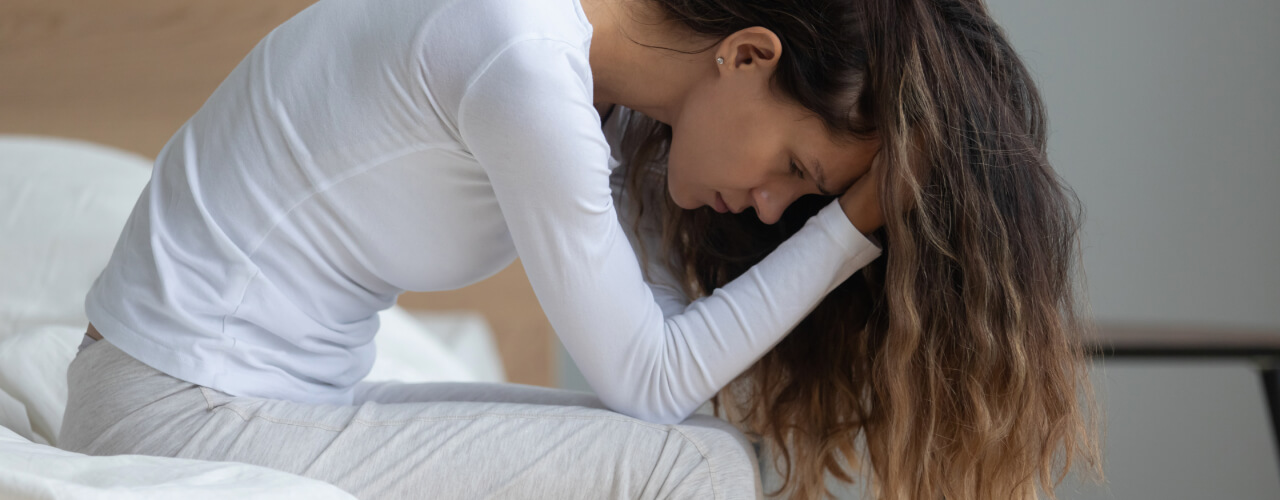Stress related headaches can put a huge damper on your quality of life, interfering with your ability to do your job, to enjoy time with your family, or to go about your business in just about any way. As headaches interfere with your ability to engage in regular tasks, things can start to add up and you may soon start to feel like you are totally losing control of your ability to manage even the most basic tasks—which in turn can add more stress to your plate, and in turn leave you pre-disposed to have even longer, more intense stress-related headaches. It is a vicious cycle, but there is a way to break out of it.
Physical therapy can help you to overcome stress related headaches. Working with a physical therapist can help you identify exercises that reduce tension and help you find long-term relief from headaches, without the need for reliance on pain medications.
What Causes Stress Related Headaches?
The easy answer to this question is stress, but in reality the answer is a lot more complicated than that. Stress can manifest in all sorts of ways, and finding ways around the stress isn’t always an option. Stress can build from a wide array of activities, and some of those activities may be things that you genuinely enjoy doing, but that doesn’t mean that they aren’t weighing on you, creating an added level of pressure that can manifest in painful headaches.
Stress is a common trigger for tension and migraine headaches. Rather than stressing about ways that you can outright avoid stress, it may be more helpful to think about strategies that will help alleviate headaches once they develop—as well as stress reduction techniques that may prevent the stress from reaching your head in the first place.
Relaxation Techniques for Headache Relief
If stress is causing headaches to develop in your life, then finding ways to relax to reduce the build-up of that stress may be helpful. Some of the most common forms of stress reduction therapy include meditation, yoga, tai chi and deep breathing techniques. Other habits that can also sometimes help to alleviate stress include listening to music, dancing, engaging in exercise, reading a book, or spending time with loved ones—especially pets!
Here are a few lifestyle habits that are shown to reduce stress:
- Simply whatever is possible. While it sometimes feels that the only way to manage stress is to squeeze as much into a day so that you can tackle your endless to do list, sometimes what you actually need is to simplify your life. Ask yourself what really needs to be done and focus on that.
- Eat as healthy as possible. What you put into your body makes a big impact on what your body is able to handle. Try eating a diet that is rich in fruits, vegetables and whole grains to help prepare your body for the stress you need it to handle.
- Get enough sleep. Sleep isn’t something that can be compromised on when it comes to managing stress. Staying up late to get a task done is only going to lead to more stress. Try to get a sufficient amount of sleep daily so that you can handle what’s ahead.
One of the most effective things that you can do to help reduce the impact that stress has on your life is to work on adjusting the way that you react to stressors. Changing your attitude and becoming more open to things that would have previously stressed you out can significantly help improve the way your body copes with stressful events. Try making simple shifts in the way that you think about stressful events. Simply shift from considering something as “impossible” to “tough, but possible.” Look at ways that you can rise to a challenge versus how overwhelming the challenge feels.
Physical Therapy for Stress Headaches
If you are experiencing chronic headaches as a result of stress, then physical therapy may be able to help you find relief from that pain. In many cases stress headaches will develop as a result of tension that builds up in the neck and back. Working with a physical therapist can help you to target areas of tension, thereby helping to alleviate pain and improve quality of life.
There are several strategies that physical therapists often use to help with stress headaches. These include:
- Hot and cold therapy: Applying hot and cold compresses in an alternating rotation can help to reduce tension and alleviate pain.
- Massage: Identifying areas that have tension build up and targeting them with massage therapy can help to alleviate head pain.
- Manual exercises: Your physical therapist can help you to identify exercises that will help you reduce tension naturally by improving your range of motion and stretching your muscles in a relaxing manner.
If you are experiencing regular headaches as a result of stress, including tension or migraine headaches, then it may be helpful to contact your physical therapist to learn about therapeutic options that can help you experience relief from your pain. Contact TheraFit™ today to schedule a consultation and to get started.

